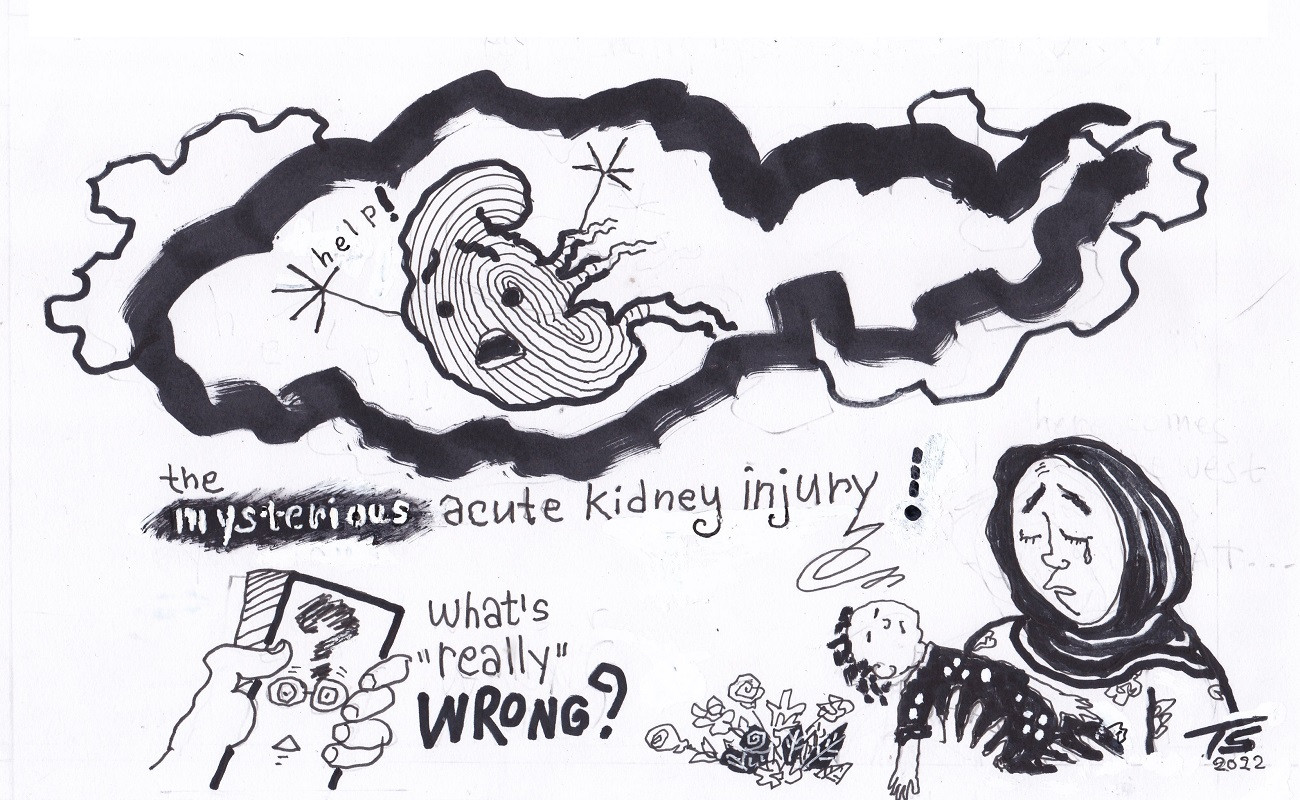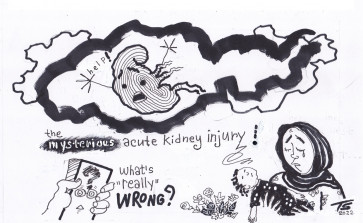Popular Reads
Top Results
Can't find what you're looking for?
View all search resultsPopular Reads
Top Results
Can't find what you're looking for?
View all search resultsMinister, please don’t let more children die
One of the most important lessons from the pandemic is the success of a communication strategy and control of information flow.
Change text size
Gift Premium Articles
to Anyone
C
hildren are dying in Indonesia due to acute renal failure of unknown origins. In medicine, acute renal failure is an unusual cause of death for children, giving it the merit of an outbreak. So far more than 240 cases have been recorded with an over 50 percent mortality rate (133 deaths).
The situation is heartbreaking as helpless parents shared pictures and videos of their dying toddlers on social media.
A similar phenomenon is happening in Gambia, where 70 children have reportedly died of acute kidney injury linked to ingredients in cough syrups manufactured in India. An epidemiological investigation was launched by the World Health Organization (WHO) and a laboratory analysis identified the possible cause of the disease as diethylene glycol (DEG) and ethylene glycol (EG).
Cases of EG and DEG mass poisoning have been routine in India, dating as far back as 1972 (Thakur & Thikkavarapu, 2022). This only shows that the booming pharmaceutical industry in the country is not accompanied by adequate government surveillance.
The proximity of the outbreak period in Indonesia and Gambia sparked speculations that the deadly syrups in Indonesia were imported from India. But the Indonesian Food and Drug Authority (BPOM) was quick to deny it, saying the contaminated syrups from India were not registered in Indonesia.
The government’s denial, however, could not change the fact that deaths from acute kidney injury in children that are linked to DEG poisoning have occurred all over the world, not just in India; such as in Haiti in 1995 and 1996 (Centers for Disease Control and Prevention, 1996) and in Nigeria in 2008 (Akuse et al., 2012). All the deaths were diagnosed with acute renal failure associated with DEG contamination in paracetamol syrups.
Apart from accidental contamination, this is a perfect case of structural violence. Children are a vulnerable population. They cannot stand up for themselves or advocate for their rights. The refusal of governments to take accountability and put measures in place to prevent similar occurrences constitutes an act of killing on these children.



















